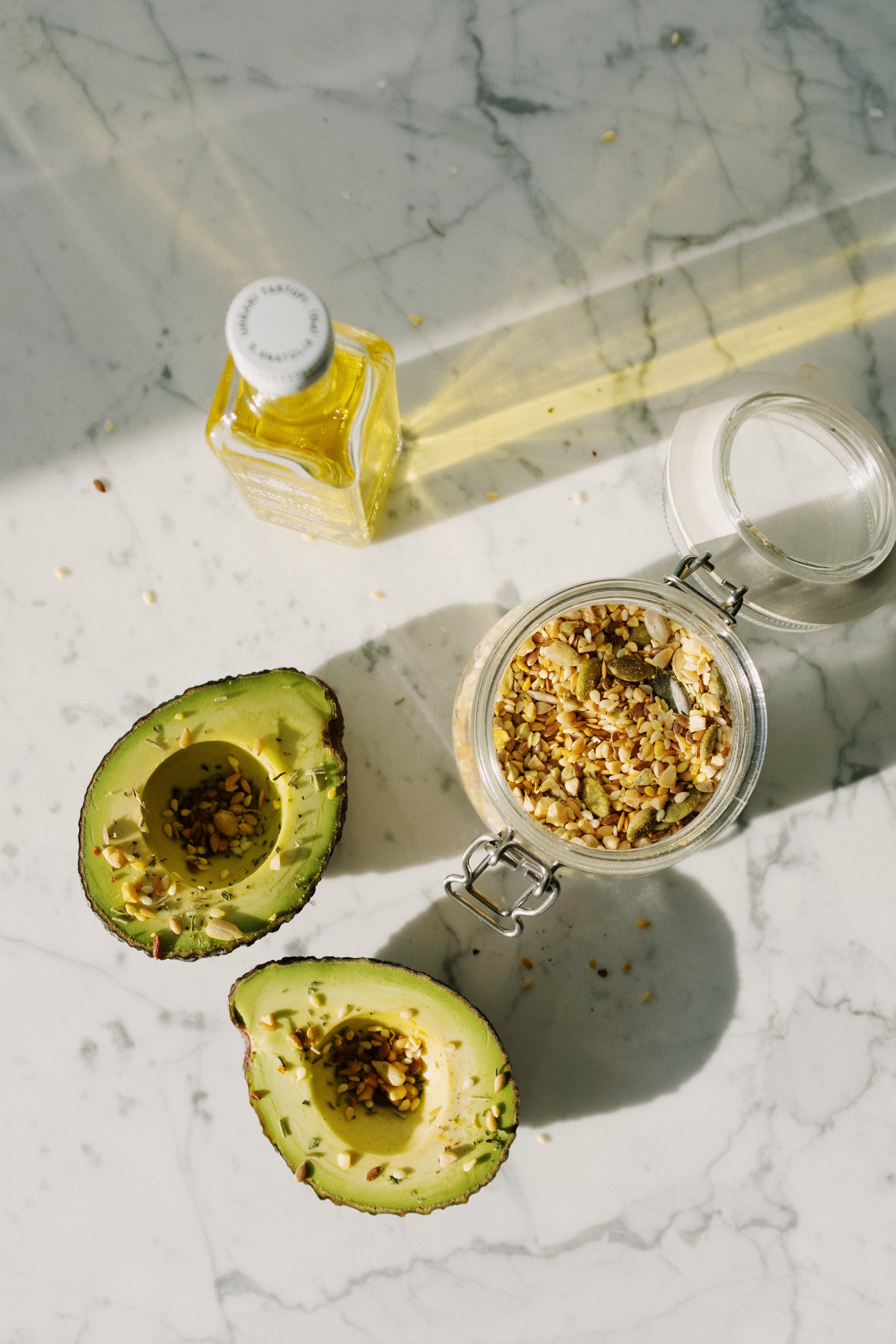Get the Fix on Fats- What Fats to Eat and What to Avoid
Let’s just toss out the belief that eating fats makes you fat. That's been disproven time and time over.
Sugars, and eating more calories than you expend, along with MANY MANY other factors are what causes weight accumulation. And let’s just also presence that eating too much of anything will have an adverse impact on your health. Moderation is always key.
Fats are essential. We require fats for the lining of every single cell in our bodies. Our brains are 60% fat, we need fats in order to utilize fat-soluble vitamins like D, K, E, and A, and our hormone and immune systems rely on fats.
However, not all fats are created equal, and eating ‘bad’ or poor quality fats can do a number on your health, and is an often overlooked aspect in otherwise healthy diets.
So what’s the skinny on fat?
“Good” and “Bad” Fats
There are 3 types of fats: Monounsaturated, Polyunsaturated, and Saturated fats, and it is important to get a variety of different types of fats to get the benefits of each.
The Good (Eat Plenty)
Monounsaturated Fats: Almonds, Pecans, Macadamia Nuts, Cashews, Hazelnuts, Avocados, and Olive Oil are good sources here.
Polyunsaturated Fats: Fish, Sesame Seeds, Flax Seeds, Sunflower Seeds, Pumpkin Seeds, Walnuts, and Fish Oil and “Omega 3s” are good sources.
The Also Good (Eat in Moderation)
Saturated Fats: Coconut Oil, Grassfed Butter, Ghee, Grassfed, Hormone and Antibiotic Free Meats*.
*Historically, we have been told to avoid saturated fats from animal products, but research is now showing that carbohydrate intake plays a larger role in heart disease and cholesterol levels than saturated fats. Always be sure to source grass-fed, hormone-free and antibiotic-free when using animal products for the best quality.
The Bad (Avoid)
Trans Fats: Margarine, Vegetable Shortening, Many processed foods also contain trans fats.
Trans fats, which are fats that have been chemically altered through a process called ‘homogenization’ in order to be solid at room temperature and shelf-stable. These fats are highly inflammatory and have been associated with a higher risk of heart disease, stroke, diabetes, and obesity.
Industrial Oils: Vegetable Oil, Soybean Oil, Canola Oil, Cottonseed Oil, and Sunflower Oil.
These industrial oils go through intensive chemical processes that often involve toxic solvents, bleaches, and other chemical deodorizers, and are also typically grown with a lot of pesticides. I recommend trying to avoid these oils.
As a rule of thumb, ask yourself is this a fat my grandmother would have eaten?
Quality of Fats
It’s not just about which fats you eat, but the quality of fats you eat as well.
Look to buy organic wherever possible, including your oils.
Focus on grass-fed, antibiotic-free, and hormone-free meat and dairy.
Avoid fish that contains high levels of heavy metals such as Tuna, Mackerel, and Swordfish.
Make sure your oils are as freshly pressed as possible for maximum benefits.
Cooking with Fats and Oils
Choosing the right fats also depends on what you’re going to do with them. Certain oils have a lower “smoke point” and thus should not be heated as they lose benefits and in some cases actually become harmful.
Cook with these: Avocado Oil, Grassfed Butter, Ghee, or Coconut Oil.
Use these Cold as Dressings or in Smoothies: Olive Oil, Sesame Oil, Walnut Oil, Flax Oil
Be Mindful of Eating Out and Premade Meals
While you may be careful about which fats you use at home, don’t forget to be mindful when eating out or buying any premade food to check what types of fats are used or listed to help in your decision-making!
Our choices in fats have the potential to be either a deep support or a detriment to our health. I hope this guide was helpful in pointing you in the direction of healthy fats!

